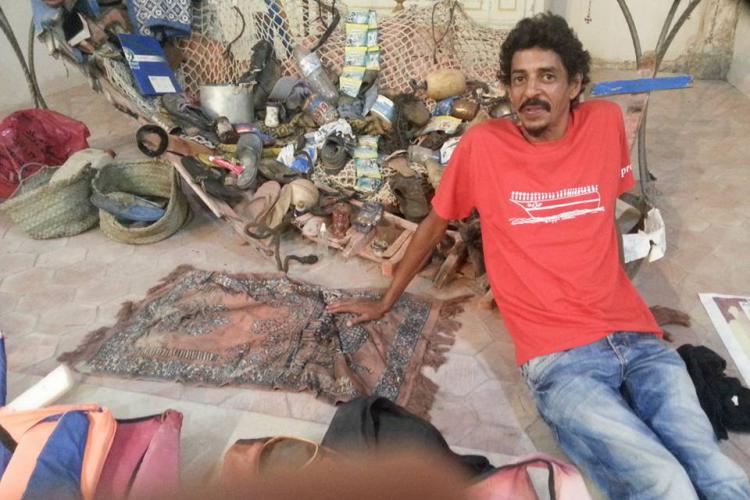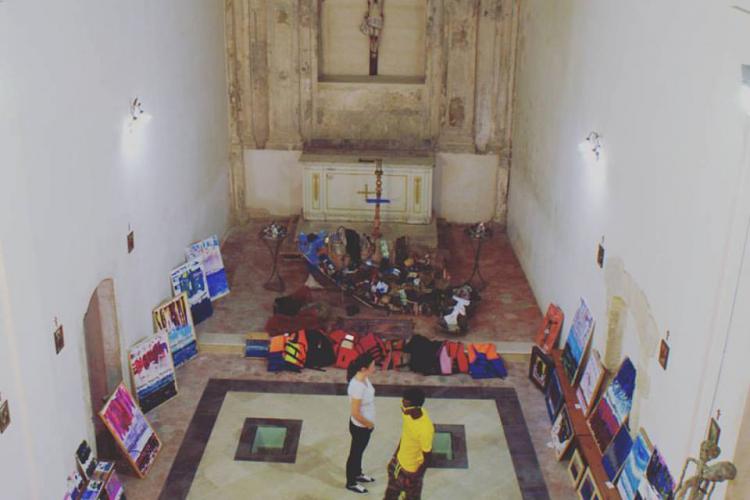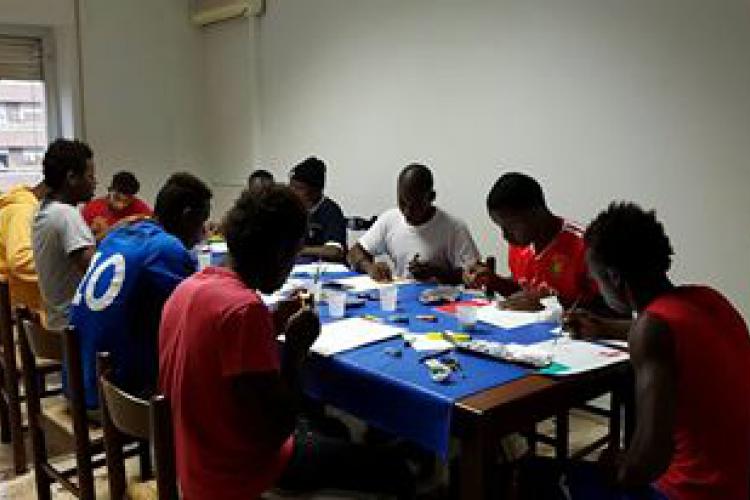Guest post by Ramzi Harrabi, a Tunisian artist, activist and lecturer. He is the founder and director of the Intercultural Studies Center and the President of the Immigrants Council for the province of Siracusa, Italy. Ramzi also manages many projects related to integration and migration, as well as teaching intercultural communication, Arabic language and the history of Islam throughout Italy. Ramzi recently worked as a member of the Tunisian independent elections authority in Italy. His poems were awarded the Italian national prize (premio Maria Marino), and one of his paintings won the second prize at the European Tendari festival. In 2008, Ramzi was among the finalists for the Euro-med award, organised by the Anna Lindh Foundation, obtaining a special mention for promoting intercultural dialogue in the Euro-Mediterranenan region.

When I migrated to Sicily from Tunisia 16 years ago I decided not to be passive, politically speaking, now that I was away from Ben Ali’s regime. I first thought my enemy in Italy would be encarnated in those proclaiming fascist or right wing ideologies. But once I became an activist for migrants’ rights, I found out that my real battle would be against the colonial logic and assumptions that informed how some NGO s and organisations engaged with migrants. I have seen many European funds for refugees and migrants spent unwisely. Commisioned and designed in a ‘white’ European mono-cultural top-down fashion, without consulting potential beneficiaries, they may have a sterile impact on migrant lives and positions. So I decided to start working for migrants’ economic independence and self organisation. For the past 13 years, I have worked in the field of migration, adopting different roles and positions. Over this period, I have come to realise that if we, migrants, do not raise our voices then no one will do it for us.

In this context, I started a fundraising project, called ‘Uprooted’. It aims to raise money through an art exhibition. All of the exhibited artwork is for sale, with the proceeds going to help refuge to set up their own agricultural businesses with appropriate guidance and empower them by offering equal opportunities. The title of the project reflects both the state of mind of many refugees and migrants, and the emotional state of the four artists involved in this initiative.

Each artist has worked on different stages of migrants’ journeys. Francois Koltes, a French sculptor, works on those who didn’t survive or who lost their lives in the sea. His sculptures are haunting. They often leave the audience shocked and emotional by bringing them face to face with the cruel reality of death and hopelessness. Elizabeth Atkisnon, a painter from the UK, has focused on the dreams of new arrivals and their potential for resetting their lives. Salvatore Accola, an Italian artist, has interpreted with his colours the feeling of disorientation that most migrants experience upon arrival. I, as the fourth artist of this exhibition, concentrate on the actual journey towards hope for a better life and freedom. The word freedom is incised on the front of each boat that I paint. All four of us focus on home as seen through the narratives of migrants.

When I decided to start fundraising through art in support of migrants and refugees, I spent considerable time thinking on where to house the collection. I do not believe that social justice actions should only occur in back alleys on the outskirts of cities, as if they are something we should be ashamed of. In the end, the old Gesu and Maria church, in the centre of the city of Ortigia, Siracusa, in front of the famous noble pallazzo Bellomo, closed for many years, appeared as the perfect setting for such a powerful message.

Communicating leaves an impact and an echo. It touches the sleeping, thinking parts of our minds. Whether we choose to communicate with verbal or non verbal means we must ensure that we are heard, otherwise silence is all that remains. I hope that the Uprooted project will support migrants in raising their voices in ways that can be heard by the public at large.
Any comments about this post? Get in touch with us! Send us an email, or post a comment here or on Facebook. You can also tweet us.
Share:








